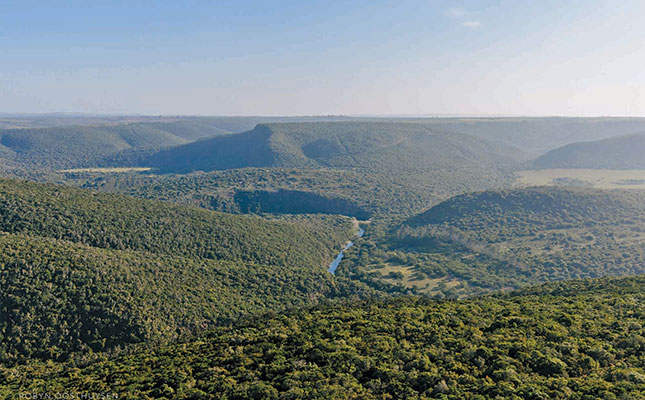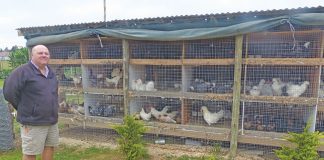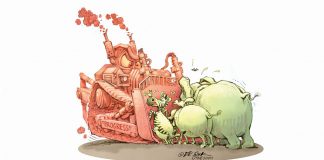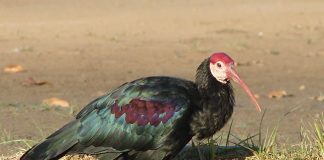
Photo: Buffalo Kloof Wildlife Safaris
Buffalo Kloof Wildlife Safaris is a family-owned hunting and conservation concern owned and operated by Warne and Wendy Rippon. The 16 187ha reserve, 20 minutes’ drive from Makhanda (Grahamstown), boasts four of the big five game species.
“We’re passionate about the fact that hunting and conservation are two sides of the same coin. When properly and ethically managed, they can harmoniously and synergistically coexist for the benefit of the game farm, its wildlife, local communities, and even the country as a whole,” says Warne.
Buffalo Kloof prides itself on being a part of the surrounding communities, he adds. He and Wendy take their responsibility toward these communities seriously, and believe in reciprocity.
“Our intention is to maintain a mutually beneficial relationship, to mentor and uplift the community,” says Warne.
Buffalo Kloof has, in a partnership with the adjacent Yendella community and Eastern Cape Parks, combined its land to create a free-roaming conservancy. The Rippons have also introduced Yendella to international conservation organisations with which they are partnering in conservation and anti-poaching activities.
Train and mentor
The couple believe that the challenges faced by the Yendella community demonstrate that donations alone are not enough to alleviate poverty. Investment in the form of training and mentoring are needed to bring about lasting development.
“The old adage, ‘Give a man a fish and you feed him for a day, but teach a man to fish and you feed him for life’, rings true,” says Warne.
“For this reason, Buffalo Kloof’s upliftment programme is built on a foundation of participative training and mentoring in collaboration with key role players like the Eastern Cape Parks Board.”
He adds that involving the neighbouring communities enables the entire area to thrive, and educating people in conservation and land stewardship is a key part of the Buffalo Kloof philosophy.
The communities, together with the
wildlife and the land itself, are precious assets that need to be preserved. It is therefore essential to assist the communities to contribute to, and participate in, the rewards from the area’s ecotourism, hunting and conservation industries.
Making land available for wildlife
Land was the main contribution to the partnership between Yendella and Buffalo Kloof. The community made 1 000ha available to be incorporated into the reserve. This had been left fallow, as it was unsuitable for grazing or crops.
Buffalo Kloof rents the land and has put up game fencing around the area at its own expense. The community land covers about 1 500ha in all, and accommodates some 25 families. Their main economic activities are chopping and selling wood, and cattle farming.
The land was officially transferred to the community by the Eastern Cape government 10 years ago. The community also received farming equipment such as tractors, trailers and planters. However, they were never trained in commercial farming, and the land was left bare and unused.
“Food security was a daily challenge for these people. To all intents and purposes, this government initiative was a complete failure,” says Warne.
He and Wendy have worked hard to get the people involved.
Community member Rodger Mtshizana is pleased that the project will help create additional income for the people of Yendella. They will be taught how to manage the reserve, and Mtshizana considers the partnership a platform to learn more about wildlife and ecotourism management.
He says that all has gone well “because we have neighbours who care about people”.
“We’re grateful to have people like Warne Rippon and his wife Wendy as part of our community.”
Tree and grass species
The rented land consists of approximately 800ha of heavily wooded thickets. The main grasses are Panicum and other broadleaf species such as Rhodes grass (Chloris gayana) and Smuts finger (Digitaria eriantha).
The woody component includes spekboom (Portulacaria afra), wild olive (Olea europaea), acacia (Acacia karroo) and wild plum trees (Harpephyllum caffrum).
Alien tree species include black wattle (Acacia mearnsii), gum (Eucalyptus spp.) and silky hakea (Hakea sericea). Hakea, in particular, spreads vigorously and severely affects water security.
The vegetation is ideal for game species such as kudu and black rhino, but is of little use to cattle.
Free-roaming game
Buffalo Kloof’s involvement with Yendella is being rolled out over three years, with the partners currently in their second year. The first step was to remove the fences between Buffalo Kloof and the Yendella communal land, and erect a 10km game fence on the eastern boundary.
The land is leased from the Yendella community for a minimum period of 25 years, and is paid for annually in advance. Warne says the lease needs to run for a minimum of 20 years to justify the cost of erecting the game fence.
The couple have agreed to employ two suitable candidates from the community to monitor the game fences, carry out anti-poaching activities and remove alien vegetation. These candidates, if suitable, will be sent on a game ranger’s course to obtain skills and qualifications that will enable them to seek further employment in the wildlife industry.
“When they qualify, we’ll look for another suitable candidate to employ, and the process will be repeated,” explains Wendy.
An intensive game-breeding programme for the community is also a component of the partnership. This will kick off with nyala, as it is the easiest of the species on the reserve to breed. Once the programme is established, it could be expanded to include Cape buffalo, sable and roan.
The objective is to mentor the community while providing them with a slow but steady source of income on the road to sustainable and profitable game farming.
The plan is to hand over the entire project to Yendella after approximately 10 years, or once the aims of the programme have been achieved and the project is being managed successfully.
Nyala breeding
About 100ha of the Yendella community’s own land, divided into three camps of about 30ha each, have been earmarked for game breeding. Buffalo Kloof and the Eastern Cape provincial government have agreed to share the cost of the construction and fencing materials for the breeding facility.
In three years, the profits from game sales will either be reinvested in better genetics or distributed evenly among community members. Buffalo Kloof has undertaken to sell Yendella-bred animals at its annual game auction.
Buffalo Kloof will also donate a four-year-old buffalo bull to the community at the same time. This will be auctioned off, with the proceeds going to the people. According to Warne, the current market value for such a bull is R70 000, less capture and veterinarian costs of R10 000.
Buffalo Kloof supplies Yendella with five warthogs a month for meat and has also installed a solar-powered borehole with a pump capacity of 15 000ℓ/h.
“Before this pump was installed, people had to collect water from a nearby dam or rely on rainwater. The water supply was extremely unreliable, troublesome and seasonal,” says Wendy.
According to Warne, South Africa’s wildlife ranching sector is increasingly becoming involved in community upliftment, but more needs to be done and the pace has to be accelerated.
“There are positive signs of wildlife ranches in South Africa mobilising more land and engaging more consciously with surrounding communities, while endeavouring to work together with them. But wherever there’s collaboration, it should be fair and equitable, without any possibility of opportunism.”
Email Warne and Wendy Rippon at [email protected].











